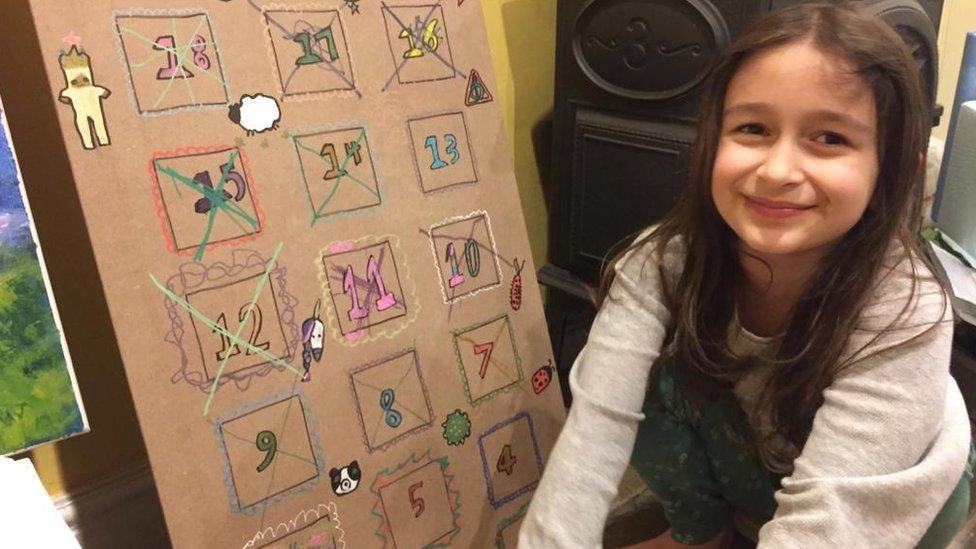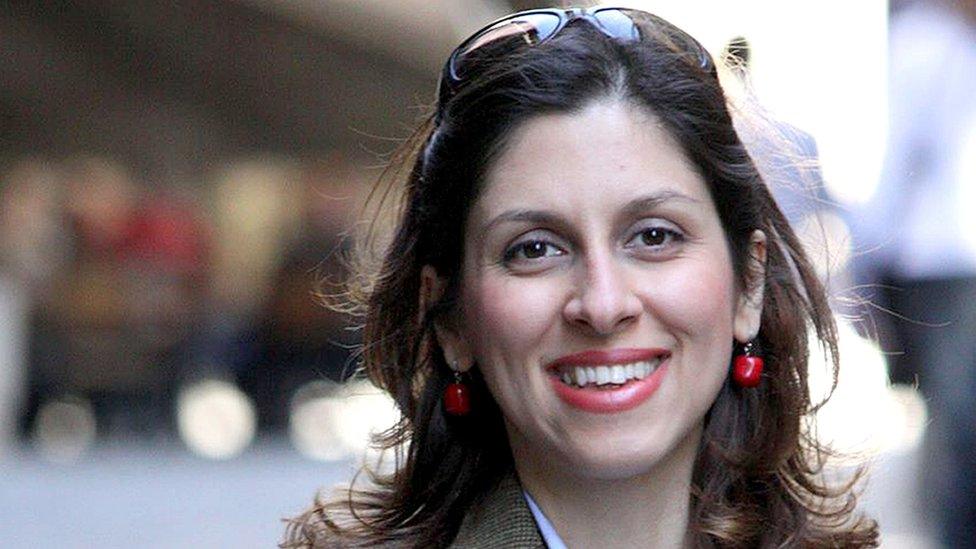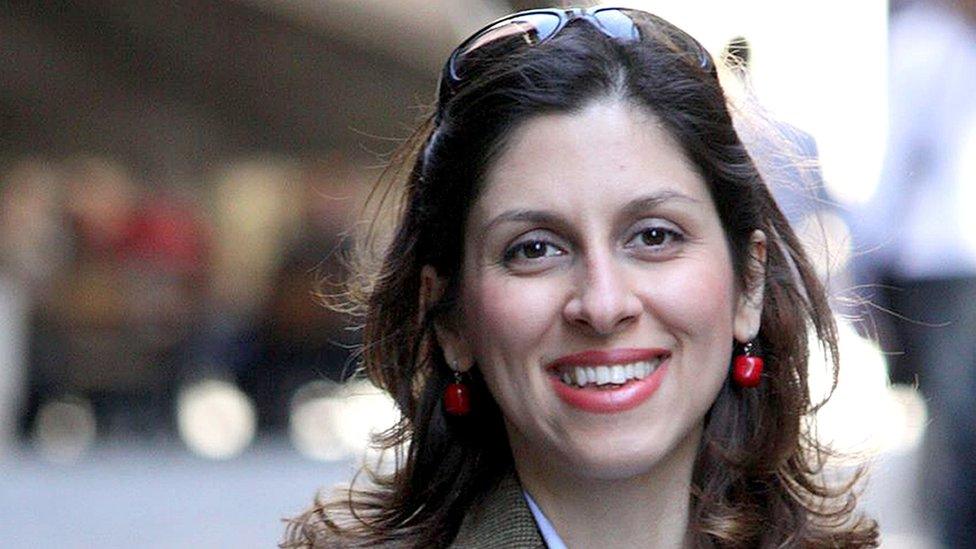Nazanin Zaghari-Ratcliffe's daughter not yet told mum faces prison again
- Published
Richard Ratcliffe said he has not broken the news of the new jail sentence to their young daughter
The husband of British-Iranian woman Nazanin Zaghari-Ratcliffe says he has not yet told their daughter that "mummy could be in prison for another year" after her sentencing in Iran on Monday.
Mrs Zaghari-Ratcliffe, who was first jailed in 2016, was found guilty of propaganda against Iran's regime and was also given a one year travel ban.
She plans to appeal.
Foreign Office minister James Cleverly said the move by Iran was "totally inhumane and wholly unjustified".
Speaking in the Commons, he told MPs the charges were "baseless", adding: "It is indefensible and it is unacceptable that Iran has chosen to continue this wholly arbitrary court case."
He reiterated that the government was committed to doing everything it could to secure her return to the UK.
But Labour MP Tulip Siddiq, who represents the family's north London constituency, criticised Prime Minister Boris Johnson for his "dismal failure" in getting her released.
The British-Iranian charity worker was first jailed in Tehran in 2016 and served a five-year sentence. She has always denied the spying charges levelled against her.
Earlier, her husband Richard Ratcliffe, who has not seen his wife since 2016, said he felt "more jaded as time goes on".
Mr Ratcliffe told BBC 5 Live, external his wife was enduring "a long-running abusive saga" and he worried for her mental health.
He said he did not want their six-year-old daughter, Gabriella, to "live too closely to the ups and downs" of her mother's case, adding that it "has been in the shadow for all the time she's been growing up".
"We haven't sat down and explained to her that we think mummy could be in prison for another year. We felt it was better to wait until that actually happens before stressing that," he said.
"Certainly, at the end of Nazanin's sentence, which was last month, we were counting down the days and that was quite upsetting… when in the end she didn't come out," he said.

Gabriella counted down the days to her mother's release
Mr Ratcliffe maintains his wife was imprisoned as leverage for a debt owed by the UK over its failure to deliver tanks to Iran in 1979.
The charity worker was told that her imprisonment was linked to the £400m debt, owed by Britain for an arms deal to Iran that was done before she was born.
In the days of the Shah, Iran had bought tanks from Britain but, after the 1979 Revolution, they were not delivered. The UK and Iran have been battling in court over interest on the debt for years.
Labour's Ms Siddiq said there was a clear link between the the debt and Mrs Zaghari-Ratcliffe's situation. "Every time something happens in terms of the debt hearing being postponed, something happens on her case," she told the BBC.
"It's just too much of a correlation to deny it. The government knows it, there's no point in pretending."
Speaking in Parliament, Ms Siddiq accused the prime minister of failing to send UK officials to Mrs Zaghari-Ratcliffe's recent court hearing, which she says might have ensured she got a free and fair trial.
She said: "At the heart of this tragic case is the prime minister's dismal failure to release my constituent and to stand up for her, and his devastating blunder in 2017 when he was foreign secretary - when he exposed his complete ignorance of this tragic case, and put more harm in Nazanin's way."
In response, Mr Cleverly said: "Her anger and frustration is misdirected because Nazanin Zaghari-Ratcliffe and the other British dual nationals held in arbitrary detention are being held by Iran. It is on them."
Former foreign secretary Jeremy Hunt asked what the consequences would be for Iran "because we know they don't fundamentally care what we think or what we say".
Mr Cleverly replied that the government was investigating "the full range of options" but that it would be inappropriate to speculate what they may be.

IS THE PRISON SYSTEM FAILING?: Josie Bevan, 'prison wife', explores the repercussions of incarceration
PLAYING PATRICIA CARMICHAEL: Obsessed with... Line of Duty discuss Sunday's episode!

Related topics
- Published26 April 2021

- Published14 March 2021
